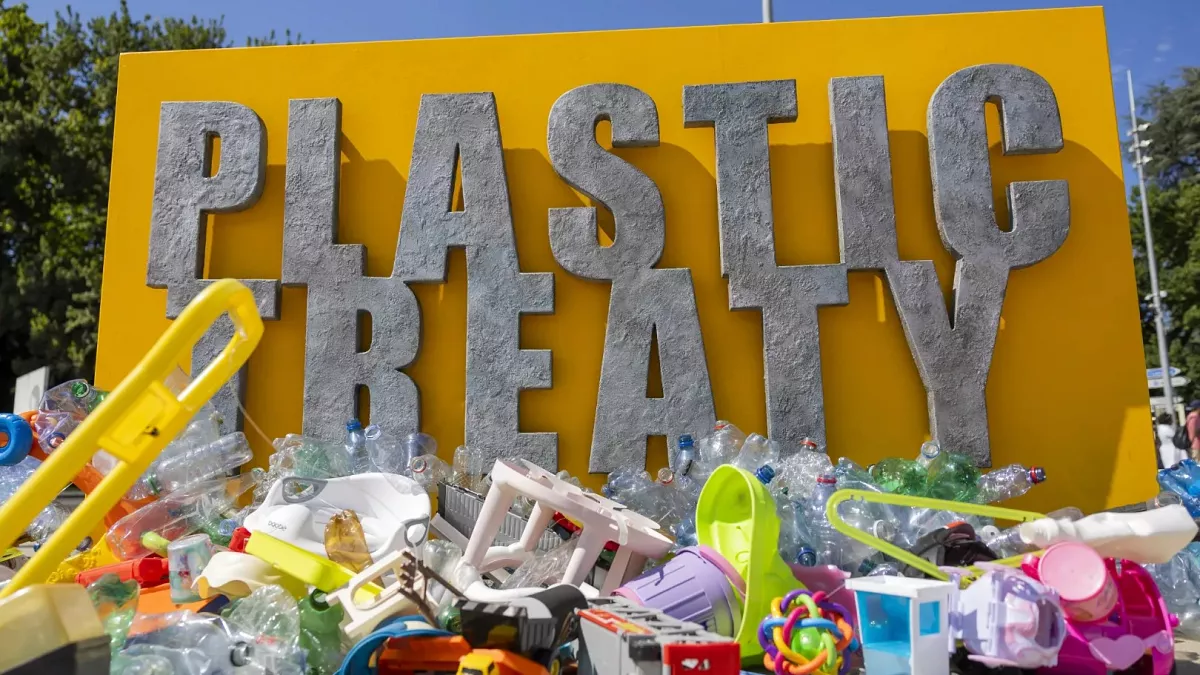Efforts to establish the world’s first legally binding treaty to combat plastic pollution ended in failure this week, as United Nations-led negotiations in Geneva collapsed without an agreement. The breakdown has raised alarm among environmentalists and governments that had hoped for decisive global action.
Stalemate in the Talks
Delegates from more than 180 countries spent nearly two weeks debating measures to curb the full life cycle of plastics—from production to disposal. However, sharp divides emerged. Petrochemical-producing nations, including the United States and several Middle Eastern states, opposed binding limits on virgin plastic production, instead favoring voluntary approaches centered on waste management. On the other side, the High Ambition Coalition—made up of the European Union, Canada, Colombia, and many developing nations—pushed for strong, enforceable caps on production and chemical use.
With neither side willing to compromise, the talks ended without a draft treaty or a timeline for the next round of negotiations.
Public Health and Environmental Concerns
The failure comes as scientific evidence grows about the risks posed by plastics. Microplastics have been detected in human blood, organs, and even placentas, raising fears about long-term health effects. At the same time, plastic waste continues to choke oceans, rivers, and farmland, harming wildlife and threatening food security.
Environmental groups warn that without binding production limits, recycling and waste management alone cannot keep pace with the rapidly increasing volume of plastics being manufactured worldwide.
Global Reactions
The breakdown has been met with disappointment across much of the international community. Developing nations, many of which face the harshest impacts of plastic pollution, criticized wealthier petrochemical producers for blocking progress. European leaders echoed frustration, insisting that voluntary measures would be inadequate to address the crisis.
Still, some diplomats noted that a weak agreement might have been worse than no agreement at all, as it could have legitimized ineffective measures. Several countries, including Colombia and members of the European Union, are now considering unilateral or regional actions to reduce plastic production and phase out harmful additives.
The Road Ahead
The collapse in Geneva highlights the challenges of building consensus on issues where powerful economic interests are at stake. Advocates argue that the setback must not be the end of the process, stressing that momentum for a treaty remains strong and that public demand for action is growing.
While the path forward is uncertain, one reality is clear: without bold commitments to reduce plastic production, the global pollution crisis will continue to escalate—threatening ecosystems, public health, and future generations.
















Leave a Reply